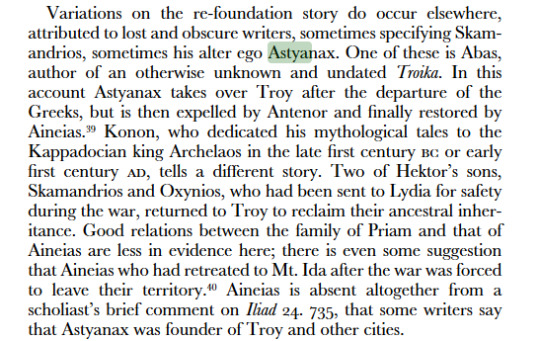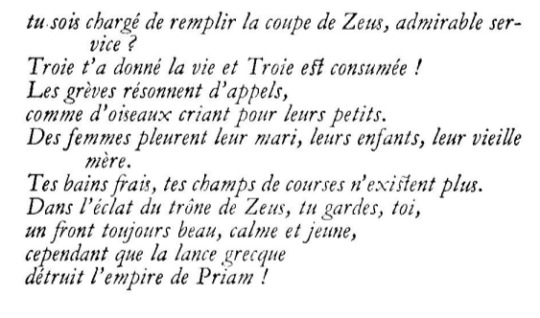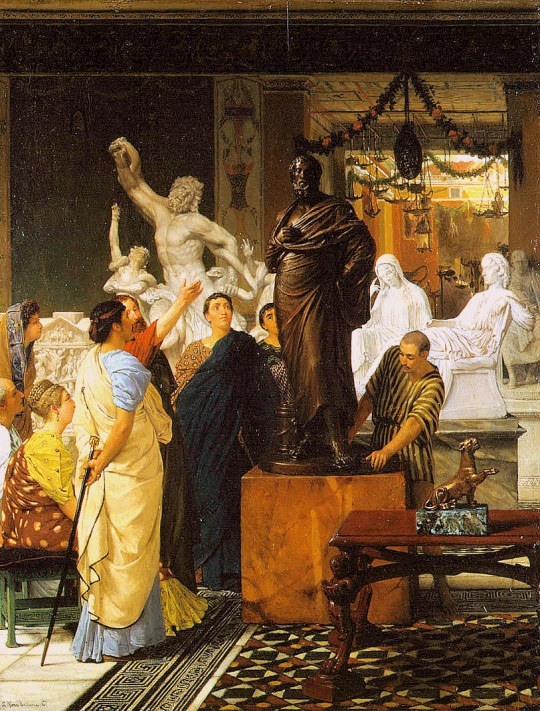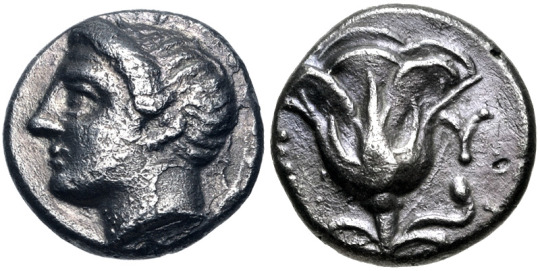#Troad
Text
Mamica excitata sare in pula ca nebuna
Hot latin girl showing and hot at bar
cum tribute in the big tits of annamromano
Best milf anal squirting
Step Mom is Stuck in her New Chair - Leads to Anal - Melanie Hicks
Indian Mujra dance
Vietnamese Teen Couple
Marilu amiga caliente cogida en hotel de tlalpan
Asian hottie with gentle hands gives lucky boy a wet hot rub
Shannon Stewart Wet and Wild Live
#morphinism#conrey#pimples#Pero#north-easter#hydroxytryptamine#deepfake#shinwood#Hrault#epichindrotic#bitterbur#shpt.#octroi#Brookhouse#prelateity#Farrel#tritiums#tarpaulin#Troad#nailsick
1 note
·
View note
Text
9am seneca hitting me with that there is nothing after death
#oh well. post mortem nihil est ipsaque mors nihil. seneca amo te.......#shut up ulrike#seneca the younger#tagamemnon#troades#set for class this week so im flicking back and forth between the latin and the facing translation...
13 notes
·
View notes
Text
~tragedies end with catharsis~
I am only full of fury, left with nowhere to go
BITING KILLING TEARING full of hate
#greek myth thoughts#shoves each and every Achaean speaking character#in Euripides and Seneca's Troades INTO A FUCKING WELL
16 notes
·
View notes
Text

Troades, Euripides (trans. Marie Delcourt)
1 note
·
View note
Text
All I have to say for now is, I dont think afo is defeated yet. Chapter ends in a cliffhanger and the way he was "defeated" was absolutely ridicolous. Hori I get that you are a bakugou fanboy but can you PLEASE stop forcing down everyones troad what a gary stu he is? "He covered his explosive sweat with normal sweat". Like WHAT??? 🤣🤣🤣 and somehow it ends up in afos mouth??? (Ewww). And all the vestiges fanboying/girling over hawks? What kind of manga am I reading again? 🤣🤣🤣
Only good part about this chapter is, that at least it got confirmed that bakugou was some ugly ass baby. Cant believe we get his birth before the main characters.... oh my bad I forgot HE is the main character now. Afterall he is the one allowed to "defeat" the main villain while the fight between the supposed main character of the story and the secondary main villain happend completly offscreen! Great writing! 👍🏻😆
91 notes
·
View notes
Note
Can you tell me more about Oneone character
Oenone myth
The Greek myths of Oenone are largely restricted to Paris, as far as I know! Since there isn't much beyond that, I'll post excerpts. And my usual warnings, in case someone read this post outside of the context of my blog:
I’m not a classicist. It’s just a hobby. It's possible that I forget or make mistakes, and I'm always open to corrections and additions.
I focus on discussing Greek sources. There are Roman sources, I'm just not mentioning them because they're not my focus.
Oenone was the daughter of the River Cebren (Pseudo-Apollodorus, Library, 3.12.6; Parthenius of Nicaea, Love Romances, 4; Tzetzes, Ad Lycophronem, 54. Note: In the Parthenius text, Nicander of Colophon is presented as Parthenius's inspiration, so he counts here as well. You can read about it here.) or of Oeneus (Tzetzes, Ad Lycophronem, 54). In none of the attributions (Cebren and, more rarely in the surviving sources, Oeneus), was her mother's name mentioned.
Cebren was a Troad river god and even had coins named after him (see here). I didn't find a website indicating a source explicitly stating who his father and mother are, but there are chances that they’re the titans Oceanus and Tethys because it was common for river deities to be their children. In any case, Oenone wasn’t an Oceanid (daughters of Oceanus) or a Nereid (daughters of Nereus), but a Naiad (freshwater nymphs) of Mount Ida. There are two Mount Ida, but in this case I'm talking about the one near Troy.
By Cebren, Oenone was the sister of the nymph Asterope. Asterope was the wife of one of Priam's sons, Aesacus. Aesacus was responsible for interpreting Hecuba's dream, saying the meaning was that Paris would be the cause of Troy's destruction. As a consequence, Paris was exposed as a baby (Pseudo-Apollodorus, Library, 3.12.5; Tzetzes, Ad Lycophronem, 224). In other words, interestingly, Oenone's brother-in-law interpreted Hecuba's dream and this interpretation caused Paris to be exposed, which in turn caused him to be raised as a shepherd by Agelaus, which in turn caused him to meet Oenone. They had a son named Corythus, whom Paris abandoned as he abandoned Oenone (Conon, Narrations, 23; Parthenius of Nicaea, Love Romances, 34. Note: In the Parthenius text, Cephalon of Gergitha and Hellanicus of Mytilene, a contemporary historian of Herodotus, are presented as sources for this version).
Oenone had knowledge of healing and prophesying, and she’s a character with a lot of personality. She’s represented as sweet (as a wife), as worried (because of the prophecy), as jealous (because of Helen), as vengeful (because of Paris), as sorry (because of her attitude), as mourning (because of Paris' death) and as suicidal (because of Paris' death). Although she probably knew Paris would eventually be a prince, when Oenone becomes his wife, it’s to be the wife of a shepherd on Mount Ida. Her love for him was genuine (depending on the source, it’s possible to know that he genuinely loved her too). To me, Paris' death is directly caused by Philoctetes (because of the arrow), but indirectly caused by Paris himself (because of his actions. He wouldn't be dead if he had listened to Oenone, and she wouldn't refuse him if she didn't have reasons to).
Furthermore, there are versions in which Oenone is the one who sends her son to war with the intention of taking revenge on Paris, which is...an interesting attitude for a mother. Corythus didn't need to go to the Trojan War, Oenone was basically throwing away the luck that many mothers in the Trojan myths would have loved to have. Like, I think Thetis, Anticlea, and Hecuba are well-known examples. And yet, there are versions in which she risks this in order to harm Paris. So, yeah. She's kind of just remembered as "the one Paris abandoned, and she still killed herself because of this man" in a vibe that makes it seem like her character is bland, but I genuinely think she has an interesting personality. She is very human!

Bacchylides
(518 BC– 451 BC)
From high above the comely wife of Paris, Oinone, hastened along her final path.
Fragment 20D. Translation by David A. Campbell.
Here we only know that Oenone committed suicide by jumping from a high place.

Lycophron of Chalcis
(Probably born about 330 BC–325 BC)
[...] all which things the jealous spouse [Oenone] shall bring to light, sending her son [Corythus] to indicate the land, angered by her father’s [Cebren] taunts, for her bed’s sake and because of the alien bride. [Helen] And herself, the skilled in drugs [Oenone], seeing the baleful wound incurable of her husband [Paris] wounded by the giant-slaying arrows of his adversary, [Philoctetes] shall endure to share his doom, from the topmost towers to the new slain corpse hurtling herself head foremost, and pierced by sorrow for the dead shall breathe forth her soul on the quivering body.
Alexandra. Translation by Aw Mair.
In Alexandra, Lycophron wrote from the point of view of a slave, who had been sent to watch over Cassandra, who was believed by everyone (including the Trojans) to be mad. He's reporting what she said (her prophecies) to King Priam. Here, Cebren apparently says something about Helen being preferred over Oenone, which angers Oenone and makes her even more jealous, so she sends the son she has with Paris, Corythus, to help the Achaeans take Troy. Paris is eventually injured by Philoctetes and Oenone, grieving, commits suicide throwing herself from a high place.
Synthesizing:
Oenone is proficient in healing.
Paris and Oenone were married, and had Corythus.
Paris leaves her for Helen, which makes Cebren provoke her.
Angered, Oenone sends her son to help the Achaeans.
Paris is injured by Philoctetes and dies. Because of this, Oenone commits suicide jumping from a high place.

Strabo
(64/63 BC–24 AD)
Demetrius (of Scepsis) supposes that the tract about Ilium, subject to Hector, extended to this place, from the Naustathmus (or station for vessels) to Cebrenia, for he says that the sepulchre of Alexander Paris exists there, and of Œnone, who, according to historians, was the wife of Alexander, before the rape of Helen.
Geography, 13.1.33. Translation by George Bell & Sons.
Synthesizing:
They’re married, but Paris left her for Helen.
Both of them die.

Conon
(This part of Conon was preserved because of Photius, who is Byzantine. However, Conon was a contemporary of the founder of Rome, probably born in the 1st century BC and dying in the 1st century AD)
The 23rd, how the boy Korythos was born to Alexandros of Paris and Oinone, whom he married before kidnapping Helen. He excelled his father in beauty. His mother sent him to Helen, arousing the jealousy of Alexandros and plotting something bad against Helen. As usual, Korythos went to Helen, and Alexandros passing into the room and seeing Korythos sitting beside Helen, was inflamed by suspicion and killed him straightaway. After this outrage to her and killing of her son Oinone cursed Alexandros, and prayed (for she was inspired with prophecy and the knowledge of preparing potions) that he would be wounded by the Achaeans and, unable to find treatment, would ask for her. And she went home. Later Alexandros was wounded by Philoctetes in the battle for Troy with the Achaeans. Suffering terribly, he was taken to Mt. Ida in a wagon, and sending ahead a herald asked for Oinone. She insultingly rejected the herald, saying Alexandros should go to Helen instead. And Alexandros died of his wound on the road. She meanwhile, not knowing of his end, had repented and was feeling terrible. Having harvested herbs she was hastening to reach him. How she learned from the herald that he had died and that she killed him, and she killed the herald, smashing his head with a stone for the insult. After draping herself over the dead Alexandros and reproaching their shared daimon, she hanged herself with her belt.
Narrations, 23. Translation by Brady Kiesling.
Corythus is presented as the son of Oenone and Paris. He was more beautiful than Paris, and Oenone sent him to Troy. There, he quickly became close to Helen, which made Paris jealous. Because of his jealousy, Paris killed Corythus immediately. This made Oenone enraged, so she cursed him to be harmed by the Achaeans and to need her help. This actually happened because Paris was injured by Philoctetes, and when he asked Oenone for help she refused. However, she regretted it and tried to heal him, but the herald said that Paris had died because of her. Angered, she crushed the herald's head with a stone, lamented over Paris's body and then committed suicide by hanging herself with her own belt. A difference here is that Oenone curses him later, instead of simply prophesying previously.
Synthesizing:
Oenone has knowledge of prophecies and brewing potions.
Oenone and Paris are married and have a son prettier than him named Corythus.
Corythus, in Troy, leaves Paris jealous of his proximity to Helen. Paris kills him.
Oenone is enraged and curses Paris to be mortally injured and need her help in the future.
Upon hearing from the herald that Paris' death was her fault, Oenone kills him.
Afterwards, she mourns over Paris' corpse and commits suicide by hanging.

Parthenius of Nicaea
(Exact dates uncertain, but he probably lived until the accession of Tiberius, which happened in 14 AD. So Parthenius must have been born in 1st century BC and died in 1st century AD. However, Parthenius takes inspiration from earlier sources, which I have already mentioned.)
When Alexander, Priam’s son, was tending his flocks on Mount Ida, he fell in love with Oenone the daughter of Cebren: and the story is that she was possessed by some divinity and foretold the future, and generally obtained great renown for her understanding and wisdom. Alexander took her away from her father to Ida, where his pasturage was, and lived with her there as his wife, and he was so much in love with her that he would swear to her that he would never desert her, but would rather advance her to the greatest honour. She however said that she could tell that for the moment indeed he was wholly in love with her, but that the time would come when he would cross over to Europe, and would there, by his infatuation for a foreign woman, bring the horrors of war upon his kindred. She also foretold that he must be wounded in the war, and that there would be nobody else, except herself, who would be able to cure him: but he used always to stop her, every time that she made mention of these matters.
Time went on, and Alexander took Helen to wife: Oenone took his conduct exceedingly ill, and returned to Cebren, the author of her days: then, when the war came on, Alexander was badly wounded by an arrow from the bow of Philoctetes. He then remembered Oenone’s words, how he could be cured by her alone, and he sent a messenger to her to ask her to hasten to him and heal him, and to forget all the past, on the ground that is had all happened through the will of the gods. She returned him a haughty answer, telling him he had better go to Helen and ask her; but all the same she started off as fast as she might to the place where she had been told he was lying sick. However, the messenger reached Alexander first, and told him Oenone’s reply, and upon this he gave up all hope and breathed his last: and Oenone, when she arrived and found him lying on the ground already dead, raised a great cry and, after long and bitter mourning, put an end to herself.
Love Romances, 4. Translation by S. Gaselee.
Here, Oenone was known for her wisdom, acquired thanks to her possession by some deity (here unnamed). After meeting Paris, he lived with Oenone as his wife in Ida, near his pasture. He swore that he would love her forever and not abandon her. Oenone knew that Paris was sincere in stating that he loved her completely, but she also knew, thanks to her prophetic abilities, that her husband would leave her for another foreign woman.
She warned him how this would cause a war and that he would be mortally injured, and that the only person capable of healing him would be Oenone. Paris never wanted to listen, which I imagine in this version is because even though Oenone was known for her wisdom and prophetic gifts, Paris at the time was very much in love with her and didn't want to accept that this was the truth: he would abandon her. But she was right and Paris did leave her for Helen. Knowing that he would prioritize Helen, Oenone left the place that used to be their home and returned to live on her father River Cebren.
Paris, wounded by Philoctetes, remembered Oenone's words. He sent a messenger after her to persuade her to come back. Still bitter over having been so easily abandoned despite having been his wife, Oenone refused him. She rethought and decided to go to Troy to cure him, but the messenger arrived before her. When Paris heard that Oenone wouldn’t heal him, he no longer attempted to resist and thus died. When Oenone arrived he was already dead. Grieving and remorseful for Paris, she committed suicide (not mentioned how).
Of the union of Oenone and Alexander was born a boy named Corythus. He came to Troy to help the Trojans, and there fell in love with Helen. She indeed received him with the greatest warmth – he was of extreme beauty – but his father discovered his aims and killed him. Nicander however says that he was the son, not of Oenone, but of Helen and Alexander, speaking of him as follows: –
There was the tomb of fallen Corythus,
Whom Helen bare, the fruit of marriage-rape,
In bitter woe, the Herdsman’s evil brood.
Love Romances, 34. Translation by S. Gaselee.
Yeah…basically, yes. Corythus, son of Paris and Oenone, went to Troy as reinforcement, but fell in love with Helen. Helen, finding him extremely handsome, was very attentive. Jealous, Paris killed him. Nicander, however, says that Corythus is Helen and Paris's son. He's still dead in Nicander's version, although the details of why aren't said (if it's for the same reason as the version where he's Oenone's son...well, really weird).
Synthesizing:
Oenone knew how to prophesy because she was possessed by an unnamed deity. She was renowned for it.
Oenone and Paris fell in love and they lived together at the Ida.
He was indeed in love with her, but Oenone already knew it wouldn't be eternal as he promised her.
She warned him of the fall of Troy and Philoctetes, but Paris ignored her.
When he left, Oenone was either pregnant with Corythus or Corythus was a baby/child (it's not said, but for him to exist...well, Paris has to have gotten her pregnant before leaving for Troy).
Paris kills his son.
Paris tries to get help from Oenone, but she refuses. So he dies.
She regrets it and commits suicide (it isn’t said how).

Pseudo-Apollodorus
(1st or 2nd century AD)
[...] Alexander married Oenone, daughter of the river Cebren. She had learned from Rhea the art of prophecy, and warned Alexander not to sail to fetch Helen; but failing to persuade him, she told him to come to her if he were wounded, for she alone could heal him. When he had carried off Helen from Sparta and Troy was besieged, he was shot by Philoctetes with the bow of Hercules, and went back to Oenone on Ida. But she, nursing her grievance, refused to heal him. So Alexander was carried to Troy and died. But Oenone repented her, and brought the healing drugs; and finding him dead she hanged herself.
Library, 3.12.6. Translation by J.G. Frazer.
Here, Oenone is shown to be capable of prophesying because she learned it from Rhea. Knowing that if Paris insisted on Helen, he would die, Oenone tried to warn him. He ignored her warnings (it's not explained why. Maybe he thought she was just jealous? Maybe he was just stubborn?), so Oenone simply told him to return to her if he was hurt because she would heal him (this was the only source I found where she explicitly tells him to return. In others, she warns him of Philoctetes and Paris, remembering this, chooses to return). When that moment arrived, Oenone, ten years having passed since her promise, had changed her mind. Paris died. Too late, she changed her mind and went to Troy to heal him, but discovered that he was already dead. Regretful, she committed suicide by hanging herself.
Synthesizing:
Oenone knows how to prophesy, because she learned from Rhea.
Oenone warns him about the fall of Troy, but Paris doesn't listen.
She promises Paris that she would cure him if he was reached by Philoctetes, and then he leaves.
Paris goes after Oenone after being injured, but she refuses him and he dies.
She regrets it, and that's why she hangs herself.

Quintus Smyrnaeus
(4th century AD)
I'm not going to comment too much on this one, because I think it's already quite detailed. I think that Book 10 of the Posthomerica is the most detailed representation in survivings Greek sources of the Oenone myth. Even things here that weren't usually depicted in other sources, like the gods watching them and Oenone being guided through the forest. Another difference is that here Oenone burns herself to death by throwing herself on Paris’ pyre. There is also an emphasis on Paris’ childhood in Ida when Quintus says that the nymphs and the shepherds mourn. The Trojans and Helen's reaction is also represented. I won't post excerpts because it's long for a Tumblr post, but you can read it here! And I recommend it, I found Oenone's description really interesting.

????
(Probably some era AD, unknow authorship. Greek original, though)
At Try, in a different direction, the relatives of Alexander, who were seeing to his burial, were carrying his body to Oenone. They say that Oenone – she had been married to him before his abduction of Helen – was so shocked by the sight of his body that she lost all power of speech, lost her spirit and, gradually being overwhelmed with grief, fell down dead. And thus a single tomb held her and him.
Dictys Cretensis, 4.21. Translation by R.M. Frazer.
Here we know that they were married before Paris abandoned her for Helen and she died of grief over his death, there isn't really a huge amount of detail.

Ioannis Tzetzes
(1100 AD–1180 AD)
57 "Everything in the light": Before Helen, Alexander had a wife, Oenone, who, because of Helen's subsequent marriages and the reproach and blame of her father for criticizing her, became angry and sent her son Corythus to lead the Greeks to Troy.
58 "Heavy with jealousy" is Oenone, the wife of Alexander, who was the daughter of Cebren or Oeneus. Alexander had her before Helen, and they had a son, Corythus, whom she sent to lead the Greeks to Troy, being reproached by her father for the reproach and blame of her father and Helen's subsequent marriages.
59 "The son" refers to the son of Oenone and Alexander.
60 "Subsequent" refers to the unlawful ones.
61 "Sorceress": They say that Oenone, wanting to heal the wounded Alexander, was prevented by her father. But after he died, when she later brought the drugs, she found him already dead and killed herself, either by throwing herself into Alexander's funeral pyre, according to Quintus, or by hanging herself, according to Dictys, or by falling from the tower, according to this Lycophron. "Incurable" either because Alexander was dead and could not be healed, or because the arrows of Philoctetes were smeared with the gall of the Hydra, or because she applied the drugs after the wound had been smeared; for Oenone was skilled in prophecy and medicine. Or because she applied the drugs after the wound had been smeared; incurable either because Alexander was dead and could not be healed, or because the arrows were smeared with the poison of the Hydra, in which Alexander was shot, or because she applied the drugs after the wound had been smeared; for Oenone practiced medicine and prophecy.
Ad Lycophronem, 57-61.
This text by Tzetzes is a Byzantine scholia of Lycophron's text, which I also presented in this post. Because Tzetzes is from the 12th century AD, he often cites multiple sources from different eras. The main difference here compared to other sources is that he mentions other possible interpretations of the ending of Oenone and Paris' fate other than her finding him already dead.
#Ask#gray-parrot323#Oenone#Paris of Troy#Corythus#Tagamemnon#Greek Mythology#tw: suicide#birdiethings#birdie.txt
10 notes
·
View notes
Note
Also for the bookshelf - your favourite (or a favourite) classical tragedy and where its copies are. from the answers to this ask I’m envying your well-stocked bookshelf…
This is a cunning attempt to get me to choose a favorite tragedy! But I'll bite.
I have seven copies of the Troades and six copies of the Ion. Troades: two in Greek (one is a Loeb, the other is the Barlow), then the English translations I have are Hamilton, Vellacott, Lattimore (twice) and Murray. Ion: one in Greek (Owen), then for English translations I have H.D., Vellacott, Willetts (twice) and Potter. They are shelved with the rest of my Euripides.
My book collection is a great joy in my life and a large part of the fun of doing this is getting to glory in that! But I hope it's not too envy-inducing or too much of a show-off. I think the particularities of my living situations from early adulthood through now have made it rather easier for me to accumulate and maintain a substantial book collection (I wasn't ever moving long distances, or moving in and out dorm rooms), for which I am grateful.
7 notes
·
View notes
Text
There is a quality pertaining to water in motion which suggests life. The myths of
ancient Greece show how responsive the people of those days were to the vitality and numinous character of their rivers, or in other words to the mysterious presence of a god which a river would emanate. Both major and lesser poets keep referring to them and bringing them into the landscapes of their most stirring imagery. What is there more suggestive of the numinous life of a river than the picture we are given of the Skamander in the Iliad, where the Troad scenery has become part of Greece.
Every spring even, whether gushing or trickling, was mysteriously live, for there was always a nymph presiding or embodying it,not a god but a female deity. As sons of Okeanos and Tethys, rivers were nearly always gods; springs were always female creatures. Their religio loci was feminine in contrast to the virile life of rivers.
-River Gods of Greece by Harry Brewster
100 notes
·
View notes
Text
TROAD Teasers of new characters











#lord x fnf#lord x#apollyon#sonic exe#teaser#fnf teaser#mod teaser#lord mortis#sandi334#mistful crimson morning#red mist#starved eggman#starved squidward#faker sonic
14 notes
·
View notes
Text
they said girls with brown hair couldn’t write two separate essays on necrophilia for end of semester final assessments
#one for each of the units i havent submitted for yet#one on it as control in dracula and a marcus clarke short story and one on death as coupling in seneca's troades and phaedra#shut up ulrike#uniposting#ulrikecore
11 notes
·
View notes
Text
Roman sources 1 : Roman myths
I was asked by @subjects-of-the-king if I knew of some actual ancient Roman sources about the Roman gods in their specificity. Note that I am NOT an expert on Roman religion, and that I mostly rely on books written by experts and people that studied the Roman religion and culture - but I do know of a few “direct” sources, and I will split them down briefly in two.
The first part here being entirely focused around myths. All the texts below are about Roman authors writing the myths and legends of their mythology - and... if you are interested in the pre-Hellenized Roman gods, it won’t be of any real big use, because as I said, almost all of Roman mythology is just a copy-paste or remake of the Greek one. BUT these texts are without a doubt much needed to understand how the Romans received the Greek legends and how they re-adapted them to their own religion and culture (plus if you want to compare the Greek and Roman versions of the legend, you’ll need them)
The same way the Greeks myth have two huge literary monuments at their base (Homer and Hesiod’s works), the Roman mythology relies on two big authors that made a bridge between Roman and Greek culture by importing the Greek legends into the Roman world, or creating the first literary Roman legends. These authors are Ovid and Virgil.
Ovid is of course most famed for his “Metamorphoses”, (Transformations), a collection of tales of transformation from the Greek legends, re-adapted for the Roman religion (plus with some purely unique Roman legends). “Metamorphoses” is especially famous due to the reverse-influence it had on the reception of the Greek myths - as I said before, Ovid invented a LOT of rapes of “Classical mythology”, and turned a lot of consensual or un-ambiguous Greek mythological relationships into rapes and sexual abuses. Ovid however wrote many other works that are of relevance to the Roman mythology - two I can quote of the top of my head at “Fasti” (The Festivals) which details the Roman calendar, its various festivals and celebrations and the legends tied to them (so we do have here some additional info about Roman religion itself), and the Heroides (Heroines), which is basically a set of invented letters presenting mythological heroines in a confessional mode.
The other big behemoth of Roman mythology is without a doubt Virgil, thanks to his most famous work: Aeneid. THE Roman epic poem, conceived as a direct sequel to Homer’s “Iliad”, and inventing a cultural/legendary/historical link tying the Greek mythology to the Roman one, with the founding hero of the Roman civilization, Aeneas. Just like with Ovid, while the Aeneid is his most famous works, Virgil wrote many other pieces very informative about the Roman gods - such as the Georgics, which is... a poem about agriculture basically. But when you remember that originally the pre-Hellenized Roman gods were agricultural and nature gods, centered around a farmer-religion, it makes sense a poem about agricultural chores turns out to contain a lot of info about myths, legends, rites and gods.
Beyond those two main guys, there are several other authors that made their mark and influence over Roman myths.
# Statius, who wrote two Roman epics; the Thebaid and the Achilleid (two Roman rewrites of Greek myths, respectively the fight of Eteocles and Polynices for the throne of Thebes, and the life of Achilles). Another big Roman epic we know about (but unfinished) is the Argonautica, by Valerius Flaccus - which as the title says is a Roman retelling of the myth of Jason and the Argonauts.
# Seneca, who was one of the most famous play-writers of Ancient Rome, and left us numerous famous Roman theater plays presenting Roman versions of Greek myths: Medea, Phaedra, Thyestes, Troades, a Roman Oedipus, etc...
# Another BIG author when it comes to Roman myths is without a doubt Hyginus, who produced two works entirely about collecting myths. The first is “Fabulae”, which is one of the biggest myth compilations ever produced by a Roman authors, around three hundred different stories compiled together - though, due to the huge number of stories, Hyginus sacrificed the poetic complexity of Ovid and Virgil, and so he often tells the myths in very short, simplified forms so he could cram as much as he could. His second work is basically the same thing - but this time with a theme, “De Astronomica”, a compilation of myths entirely centered around astronomy and the constellations.
# Not a Roman author, but a Greek one tackling the Roman stories: I will briefly mention here Plutach’s famous “Parallel Lives”, of their full title “Lives of the Noble Greeks and Romans”. As the name says, Plutarch decided to present biographies of famous, noble and legendary Greek and Roman figures, placed together in parallels - and I include the text here because it covers the mythical first rulers of Rome, such as Romulus and Numa Pompilius.
# I will finish this first list with a very... unusual work. Apuleius “The Golden Ass”, also known as The Metamorphoses of Apuleius. It is a late Roman novel (written somewhere on the second century) and... it is a very strange, unusual weird story. It is an humoristic, bawdy, almost erotic story of a man ending up turned into a donkey by mistake and following the adventures of various people, but it also sometimes turns into grotesque and nightmarish horror (mostly thanks to the constant involvment of terrifying witches), and it ends up as a mystical quest under the Roman cult of the goddess Isis (it shows here the “late” part of the “late Roman era”, since Apuleius’ text depicts a Roman religion stuffed with “foreign gods”). And it contains numerous very influential tales of Greco-Roman legends - most notably, it is in this story that you will find THE most famous and complete version of the myth of Psyche and Cupid, so famous that during European Renaissance it was THIS version of the myth that was known, and no other.
(A second part of this post will arrive one of these days, centered about texts talking of religion and rites, rather than myths)
#roman mythology#roman myths#roman gods#roman texts#literary sources#ovid#virgil#roman epics#the golden ass
8 notes
·
View notes
Text
A (not exhaustive) inventory of Astyanax's death and survival.
In the Little Iliad, Neoptolemos is the killer.
In the Iliou Persis, Odysseus is the killer.
In the Trojan Women we don't actually know who does the deed, "merely" that Odysseus is singled out as the (major) voice who argued for his death. As Andrew Erskine in Troy Between Greece and Rome points out (referencing another academic as well), given the lack of detail in what's left to us, Odysseus might well have been involved in Astyanax's death in the Little Iliad as well, in the same role he has in here in the Trojan Women.
Seneca (Troades) follows Euripides in the public deliberation and has Odysseus being present for Astyanax's death, but he has Astyanax leap voluntarily. (Excuse me, WTF.)
Quintus of Smyrna, in his Posthomerica, has the killing be done by "the Greeks". Not just the deliberation like in the Trojan Women, but "they" seized him and tossed him from the wall. Whether intended or not, it makes it read a little like a mob scene. (edited to add this, because I'd forgotten to check.)
Tryphiodoros, in the Taking of Ilios, has it again be Odysseus.
So what we get is that even when Odysseus isn't actively the hand that commits the deed, he's the (first? major? leading?) voice in claiming it "needs" to be done. For the ~safety of Greece~, of course.
So, now we come to myths and stories of Astyanax's survival. It's mostly here the "not exhaustive" disclaimer applies. For a lot of the Medieval sources (where this idea flourishes) I can't double check if they say anything about who/how Astyanax survives.
With that said; the Medieval manuscripts aren't the earliest ideas of Astyanax's survival!
One is late Classical or earlier; Dionysios of Halikarnassos reports of the Ilians (that is, the Anatolian Greeks of the "modern" Ilion/Troy, built somewhere after ~1000 BC) had a founding legend that involved Astyanax and Askanios.
Given that Astyanax can approach his cousin after being released by Neoptolemos, presumably Neoptolemos didn't kill Astyanax but rather take him along into slavery with his mother and Helenos.
I'll just include this screencap from Troy Between Greece and Rome for the next bit since it's easier:

On to the Medieval sources; the absolute earliest appearances of Astyanax here is as the founder of the Franks, now named Francion/Francus. French Wikipedia has a note to an author that says that Astyanax's survival was effected by (unnamed in the text and note) Medieval authors by the Greeks softening up and ending up not killing Asyanax because of his beauty.
Next is the "Andromache swaps Astyanax for another child and the Greeks (more like Odysseus) is tricked and kills the substitute". It has several appearances/uses, but the earliest (at least by the list in Wikipedia) seems to be Boiardo's Orlando Innamorato (1495).
While being unable to, like, check if anyone is named as the rescuer in some of these (Wiki also has an unsourced mention of Talthybios), in general we seem to land on either Neoptolemos or, in later stories, Andromache herself. I wouldn't think Neoptolemos ends up not killing Astyanax out of the goodness of his heart, more as a way to control Andromache, but there it is either way.
Odysseus is only ever an obstacle to be worked around, which isn't odd given how often he is either the killer, or, maybe far more important, the voice to argue that Astyanax need to die. Not so odd he'd then be construed in later stories as the character to be specifically tricked by the child-swap.
I'll put the sources under the cut!
(For the Little Iliad)
Scholiast on Lycophr. Alex., 1268:
"Then the bright son of bold Achilles led the wife of Hector to the hollow ships; but her son he snatched from the bosom of his rich-haired nurse and seized him by the foot and cast him from a tower. So when he had fallen bloody death and hard fate seized on Astyanax. And Neoptolemus chose out Andromache, Hector's well-girded wife, and the chiefs of all the Achaeans gave her to him to hold requiting him with a welcome prize. And he put Aeneas, the famous son of horse-taming Anchises, on board his sea-faring ships, a prize surpassing those of all the Danaans."
(For the Sack of Ilion/Ilioupersis)
The Greeks, after burning the city, sacrifice Polyxena at the tomb of Achilles: Odysseus murders Astyanax; Neoptolemus takes Andromache as his prize, and the remaining spoils are divided.
(Note 136 to Apllodorus' Library, trans. Frazer)
Compare Arctinus, Ilii Persis, summarized by Proclus, in Epicorum Graecorum Fragmenta, ed. G. Kinkel, p. 50; Eur. Tro. 719-739, Eur. Tro. 1133-1135; Eur. And. 8-11; Paus. 10.26.9; Quintus Smyrnaeus, Posthomerica xiii.251-257; Tryphiodorus, Excidium Ilii 644-646; Tzetzes, Scholiast on Lycophron 1263; Scholiast on Eur. Andr. 10; Ov. Met. 13.415-417; Hyginus, Fab. 109; Seneca, Troades 524ff., 1063ff. While ancient writers generally agree that Astyanax was killed by being thrown from a tower at or after the sack of Troy, they differ as to the agent of his death. Arctinus, as reported by Proclus, says merely that he was killed by Ulysses. Tryphiodorus reports that he was hurled by Ulysses from a high tower. On the other hand, Lesches in the Little Iliad said that it was Neoptolemus who snatched Astyanax from his mother's lap and cast him down from the battlements (Tzetzes and Paus. 10.26.9). According to Euripides and Seneca, the murder of the child was not perpetrated in hot blood during the sack of Troy but was deliberately executed after the capture of the city in pursuance of a decree passed by the Greeks in a regular assembly. This seems to have been the version followed by Apollodorus, who apparently regarded the death of Astyanax as a sacrifice, like the slaughter of Polyxena on the grave of Achilles. But the killing of Astyanax was not thus viewed by our other ancient authorities, unless we except Seneca, who describes how Astyanax leaped voluntarily from the wall while Ulysses was reciting the words of the soothsayer Calchas and invoking the cruel gods to attend the rite.
(Trojan Women, Euripides)
Talthybius
You that once were the wife of Hector, bravest of the Phrygians, [710] do not hate me, for I am not a willing messenger. The Danaids and sons of Pelops both command—
Andromache
What is it? your prelude bodes evil news.
[…]
Talthybius
They mean to slay your son; there is my hateful message to you.
Andromache
[720] Oh me! this is worse tidings than my forced marriage.
Talthybius
So spoke Odysseus to the assembled Hellenes, and his word prevails.
Andromache
Oh, once again alas! there is no measure in the woes I bear.
Talthybius
He said they should not rear so brave a father's son.
(Dionysios of Halikarnassos; Ant. Rom. 1. 47. 5–6)
Aineias . . . sent Askanios, the eldest of his sons, with some of the allies, mainly Phrygians, to the land called Daskylitis, where the Askanian lake is, since his son had been invited by the inhabitants to rule over them. Askanios did not dwell there for long. When Skamandrios and the other descendants of Hektor approached him after Neoptolemos had released them from Greece, he went to Troy and restored them to their ancestral kingdom.
66 notes
·
View notes
Text
i wanna blog about totally spies more. i LOVE that show. it's a pity that, at least in my opinion, the later series villains weren't as...formiddable? they weren't as deadly as before, they were goofy. and don't get me wrong, there were plenty of goofy totally spies villains, but the older ones could kill you. like helga von googen? that crazy bitch was turning people into animals for the sake of SKINNING THEM FOR HER FUR LINE. then made clothes that choke the life out of you. also troad definitely died in that episode.
also, i was thinking on who my favourite villains were, and it's definitely jazz hands, second to sebastian and his sick electric guitar theme tune. third being the iconic tim scam. but number 1 has to be jazz hands. his voice actor is. so. FUNNY. and i have such a newfound appreciation for clover, i never disliked her but she is so much funnier than i remember.
#totally spies#here we go#on a mission undercover and we're#in control!#jerry#sam#clover#jazz hands#alex#david is so unintentionally funny#tim scam
12 notes
·
View notes
Text


Troades, Euripides (trans. Marie Delcourt)
#troades#the trojan women#les troyennes#euripides#literature#the trojan women lashing out at ganymede like
1 note
·
View note
Photo

Sherd / Turkey-Troad -Troy/ Ceramic
Penn Museum
9 notes
·
View notes
Photo



A Sculpture Gallery in Rome at the Time of Agrippa by Lawrence Alma-Tadema + Memnon of Rhodes by Dalton Thomas Rix + Coinage of Memnon of Rhodes, Mysia. Mid 4th century BC
Memnon's career in Persian service had a strange start. In fact, the Persians needed his brother Mentor to defend the Troad (the northwest of modern Turkey), and gave him land in that region. Not much later, Mentor was made Persian supreme commander in the West and married Barsine, the daughter of the satrap of Hellespontine Phrygia, Artabazus, who married a sister of the Rhodians.
Memnon joined his brother and shared in his adventures. For example, when Artabazus rebelled against king Artaxerxes III Ochus in 353 or 352, they assisted him. The revolt was not successful, and Artabazus and Memnon were forced to flee to Pella, the capital of Macedonia. Here, they met king Philip, the young crown prince and the philosopher Aristotle of Stagira.
...
The Persians dug themselves in on the banks of the river Granicus, the modern Biga Çay. If Alexander moved to the south, where he wanted to liberate Greek towns like Ephesus and Miletus, they could attack his rear; if he moved to the east to drive them out, their position was strong enough to withstand the attack of a larger army. However, the Persians were defeated (June 334).
Darius, however, understood that Memnon had been right about his strategy. He ordered the Persian navy to move to the Aegean sea; it had to come from Egypt, Phoenicia, and Cyprus, and it arrived three days too late to prevent the capture of Miletus. However, Memnon, now appointed supreme commander, managed to keep the Persian naval base Halicarnassus (modern Bodrum) for a long time and was able to evacuate the town without unacceptable losses. In fact, Halicarnassus was the last Persian victory: after the siege, Alexander needed reinforcements, and it gave the Persians the opportunity to regroup.
—Memnon of Rhodes at Livius.org
Memnon, one of King Darius’s generals against Alexander, when a mercenary soldier excessively and impudently reviled Alexander, struck him with his spear, adding, I pay you to fight against Alexander, not to reproach him.
—Plutarch, Morals vol. 1
#Memnon of Rhodes#Dalton Thomas Rix#Lawrence Alma-Tadema#King Philip II of Macedon#Darius III#Aristotle#Laocoön#Alexander the Great#Plato
2 notes
·
View notes